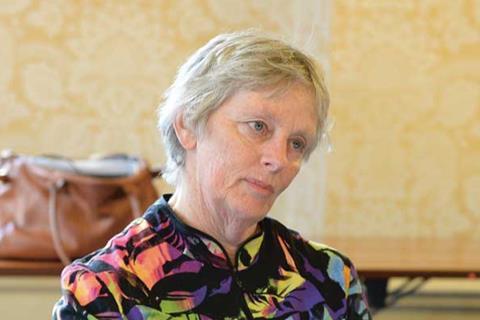Millions of people are in danger of falling into a hidden ‘justice gap’, according to the Law Centres Network.
This month marks the 50th anniversary of the law centre movement. However, Law Centres Network director Julie Bishop says the milestone comes in the midst of the coronavirus crisis, ‘when law centres could not be more needed’.
A report published by the network, Law For All, highlights an alarming spike in people seeking help from law centres for issues since the country went into lockdown.
In employment, the Equality and Employment Law Centre, in Liverpool, has seen a 90% rise in enquiries from the beginning of lockdown until 2 June. Suffolk Law Centre has seen a five-fold increase in employment and work discrimination cases between 6 April and 6 June. Enquiries at North East Law Centre rose by 44.4% between April and June.
As a suspension on housing possession proceedings comes to an end, Tower Hamlets says it has had an increasing number of calls from tenants ‘anticipating tension with their landlords to escalate’.
Professor Donald Hirsch, of Loughborough University, has developed and calculated the ‘justice gap’ - the difference between the maximum earnings at which someone can get legal aid and the amount they would need to earn to cover their own legal costs through income.

Nearly half of working, single individuals with no children would fall into the gap, as would 76% of working, single parents with one primary school child. The figures are higher for single parents and working couples with multiple children.
In a foreword to the report, Bishop says law centres can help people navigate their way through a ‘seemingly impenetrable’ justice system. ‘How can we ensure that we have sufficient resources to continue this work today, tomorrow and for the next 50 years? We want to seize this opportunity to draw attention in this report to the vital work we do, not only to highlight its importance but to attract the necessary financial support for facing this challenge,’ she says.
The report states that in March, a quarter of all law centre income came from legal aid. Nearly half of law centres recorded a deficit for the year ending 2019. Just over half of law centres had less than three months of reserve funding. Three-quarters had less than six months of reserve cash.
In May the Treasury announced a £5.4m emergency coronavirus support package for the legal advice sector, of which £3m went to the Law Centres Network. The report states that the cash helped avert closures but it was a 'wake-up call… as it exposed the precarity of relying on legal aid income'.
The network has created a new, independent source of funding, the Justice Fund.
*The Law Society is keeping the coronavirus situation under review and monitoring the advice it receives from the Foreign & Commonwealth Office and Public Health England.



























2 Readers' comments